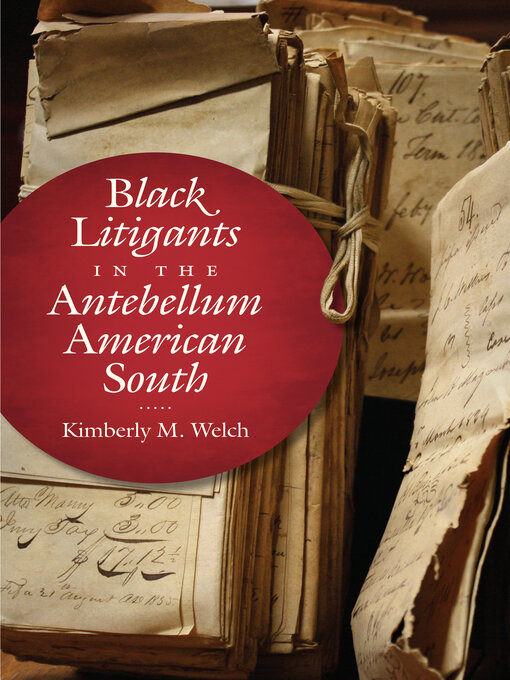-
Description
-
Details
To understand their success, Welch argues that we must understand the language that they used — the language of property, in particular — to make their claims recognizable and persuasive to others and to link their status as owner to the ideal of a free, autonomous citizen. In telling their stories, Welch reveals a previously unknown world of black legal activity, one that is consequential for understanding the long history of race, rights, and civic inclusion in America.

Kindle Book
- ISBN: 9781469636467
- Release date: January 2, 2018
OverDrive Read
- ISBN: 9781469636467
- File size: 4778 KB
- Release date: January 2, 2018
EPUB ebook
- ISBN: 9781469636467
- File size: 4783 KB
- Release date: January 2, 2018
Open EPUB ebook
- ISBN: 9781469636467
- File size: 9964 KB
- Release date: January 2, 2018
Formats
Kindle Book
OverDrive Read
EPUB ebook
Open EPUB ebook
subjects
Languages
English
To understand their success, Welch argues that we must understand the language that they used — the language of property, in particular — to make their claims recognizable and persuasive to others and to link their status as owner to the ideal of a free, autonomous citizen. In telling their stories, Welch reveals a previously unknown world of black legal activity, one that is consequential for understanding the long history of race, rights, and civic inclusion in America.

-
Details
Publisher:
The University of North Carolina Press
Kindle Book
ISBN: 9781469636467
Release date: January 2, 2018
OverDrive Read
ISBN: 9781469636467
File size: 4778 KB
Release date: January 2, 2018
EPUB ebook
ISBN: 9781469636467
File size: 4783 KB
Release date: January 2, 2018
Open EPUB ebook
ISBN: 9781469636467
File size: 9964 KB
Release date: January 2, 2018
-
Creators
- Kimberly M. Welch - Author
-
Formats
Kindle Book
OverDrive Read
EPUB ebook
Open EPUB ebook
-
Languages
English
Why is availability limited?
×Availability can change throughout the month based on the library's budget. You can still place a hold on the title, and your hold will be automatically filled as soon as the title is available again.
The Kindle Book format for this title is not supported on:
×Read-along ebook
×The OverDrive Read format of this ebook has professional narration that plays while you read in your browser. Learn more here.
